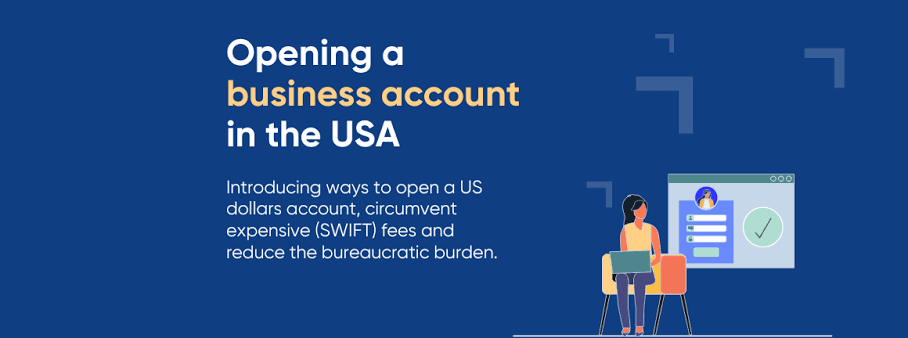The US has the largest economy in the world, with a nominal GDP of $23.
Also, it is among the fastest economies in the world, which attracts more major corporations from around the globe.
For those who don’t reside in the United States, opening a bank account is challenging when starting a business there. But it is still doable.
1. Do Research
Choose a bank that makes it easy to send money abroad and change currencies. Still, you need to put in effort. Banks have different rules for people who live there and people who don’t. Tips for choosing a bank:
Bank regulations: Not all banks have the same rules. So, it’s better to learn the rules of your preferred bank than those of the country. Compare several overseas accounts and find out how they work before choosing one.
Compare fees: Banks charge for account opening, transactions, and monthly maintenance. Knowing these requirements will help you avoid costly fees.
Contact the bank: After making a decision, contact the bank. Talk to a representative to help you set up a business bank account.
Business structure: The structure of a business is just as important. For example, if you want to form an LLC in the U.S., you need to look into how to open an LLC bank account as a non-resident to make sure you are following the law.
Research makes it easier to open a business bank account abroad. It gives you accurate information that will make it easier to fill out your application.
Read also: How to Open a Verified PayPal Account in Nigeria for Free (Updated)
2. Verify needed documentation
US businesses require appropriate documentation to open and manage commercial bank accounts. You need a visa to run a business in the US, but not abroad. Business bank accounts can be opened without it.
Documents needed to create a business bank account abroad:
Employer ID (EIN) confirmation letter (for partnerships)
SS number (for sole proprietorships) Licenses and agreements. Business address. ID, passport. Business bank accounts may not require all of the above documentation. If your chosen bank requests them, having them available will save time. Depending on their regulations, certain banks may require a minimum deposit.
3. Register with a Registered Agent
You can’t provide the bank with your paperwork overseas. Certain specialized banks can help, but if your favourite bank won’t, you can employ an agent.
The application will be completed by registered agents. It’s best to reach a binding agreement and agree on the process.
4. Fill out the application forms
Application forms must be completed following document verification. Your agency will work with you to verify the details necessary to approve your application. Your bank may request your business strategy, company structure, and financial documents. So, these documents should not misrepresent your company.
5. Apply and Wait for Approval
Let your bank have time to process and approve the documents, and your agent will notify you. After 24–48 hours, your company’s bank account should be ready.
6. Fund your business bank account
You might need to make a minimum deposit once the application is approved, depending on your bank’s policies. Your account will then be activated, making it accessible for usage.
The account information, which you’ll use to fund your account, will be sent by your bank and will include precise instructions, a routing number, and an account number.
Summary
Opening a bank account from overseas can be challenging since most banks may require you to present yourself physically. Yet, if you have support at home, it’s much easier to handle. Yet, using an agent’s services might be beneficial and streamline the procedure.




